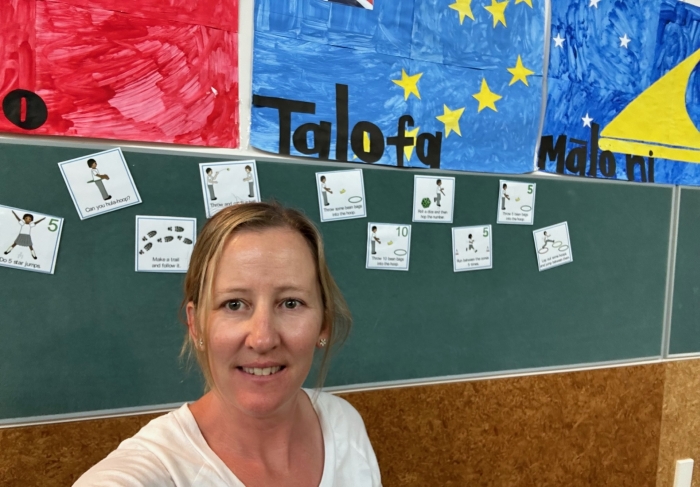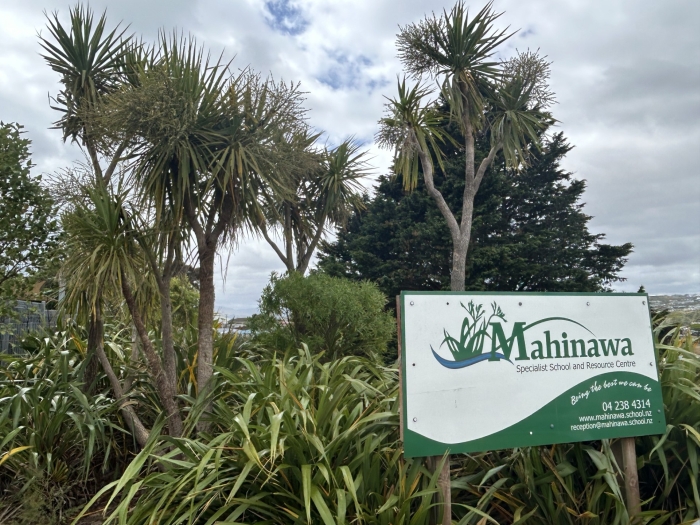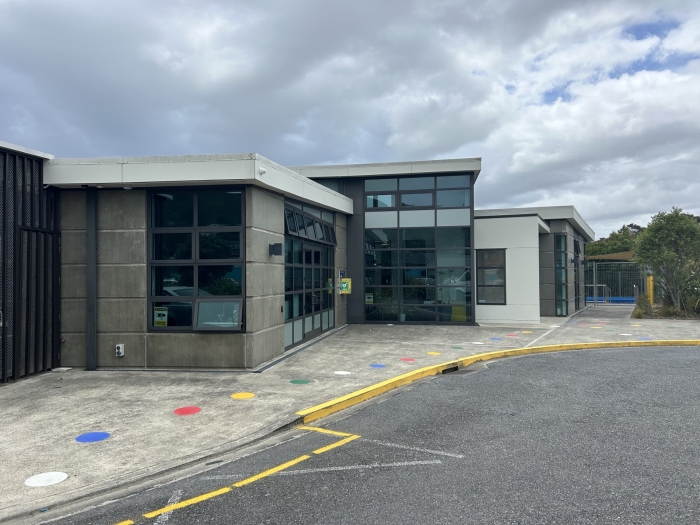
Porirua/Pari-ā-Rua, Aotearoa New Zealand
"We're seeing the long game for all of these kids, and their whānau"
For many paramedic parents of young children, the decision to return to ambulance shift work can be both daunting and challenging, bringing with it an upheaval of familial routines and the loss of time spent with loved ones.
It was a dilemma Aotearoa New Zealand paramedic Jocelyn Ives faced as she contemplated re-entering the workforce after raising her two young daughters. She was averse to going back on the road but was unsure of alternative professional options or career pathways.
“I was looking at other careers going, ‘What else can I do?’ she said. “I like being a paramedic, I wanted to keep going, but working on the road wasn't going to work for my life and what I wanted. Likewise, I didn't want to miss out on my kids because I'm tired from a night shift.”
A conversation with a Mahinawa Specialist School and Resource Centre contact during a gymnastics session that their children were both attending would prove to be life-changing. While chatting, Jocelyn talked about her predicament, about wanting to go back to work but not wanting to return to the road. They mentioned that the school - a specialist, co-educational school for students aged from 5 to 21 who have intellectual, physical, emotional and/or behavioural needs that prevent them from satisfactorily learning in regular mainstream classrooms - was in need of a health professional. The school was rapidly expanding and teachers were becoming overwhelmed with the students’ health needs.
“So, I went in and they said, ‘We don't really know what we need, but this is what we're thinking. Are you keen?’ I was, so they trialled it as a year-long contract to see whether there would be enough work for a person to do a specific health role and to figure out how it would work. I don't even think we got to a year because the year that I started [2021] was also a COVID year and the borders had just opened and it was chaos. I said to Sue, the principal - I was forward planning - ‘Are you looking at extending my contract or should I be looking for a job?’ She replied, ‘Consider your contract extended’.
“In this role I get school holidays off, I work part-time, 9am to 2.30pm. I drop the kids off at school, I go to work, I pick them up, we go off and do our thing. I don't have to worry about night shifts or finding childcare in the holidays, especially over the Christmas holidays when it's six weeks off. It's a bit of life balance, and I'm still doing what I love.”
Another paramedic has since joined her at the school, and as far as Jocelyn knows, Mahinawa Specialist School is currently the only such school in the country employing paramedics. They are working alongside a multidisciplinary therapy team that includes physiotherapists, occupational therapists, speech therapists, behaviour therapists and music therapists.
Jocelyn is working in a vastly different and expanded capacity than in ambulance service, administering authorised medications, organising and coordinating children’s immunisation schedules, attending to any on-site accidents, and visiting other Mahinawa satellite classes from Levin to Linden to touch base with staff and become familiar with the students, their conditions and their baseline health and wellbeing.
“If we get called for them because they're unwell, we know their baseline and what presentations to be worried about.”
She and her paramedic colleague are based at Porirua, about 15 minutes north of Wellington, in the main educational facility that houses the school's administration and both primary and secondary classes. Mahinawa also has four satellite classes in the Western Porirua area, four satellite classes in Porirua East, three on the Kāpiti coast, and one in the Horowhenua.

Her original title was Health Coordinator, but as the position evolved and began to encompass more welfare and general wellbeing initiatives, her role expanded to a Wellbeing coordinator within the Wellbeing Team, comprising herself and her new paramedic colleague.
“We're so busy; crazy busy. Anything that has to do with the kids’ health and wellbeing comes through us. I was looking back thinking about how I started off unsure there would be enough work for just me, so now having a busy team, it's really rewarding.”
At present, Mahinawa provides education for about 140 students, and adapting to a new practice setting has been a learning curve taking her beyond traditional ambulance acute care to operating with a significantly greater primary care focus and developing a broader skill set that includes disability processes and different referral pathways and funding mechanisms.
“I didn't really have any experience with the disability sector before I had this role. There’s a lot of learning about processes and the funding that's available for people, like how they can use their disability allowances, their different funding streams, all the different places that you can go for help that you don't do as a paramedic because we would pick up these kids, take them to hospital, or refer them back to the GP and that's it. But we're seeing the long game for all of these kids, and their whānau, because they're at school until they're 21.
“I think a lot of what we do is so different to traditional ambulance work but also so different to all of the clinic work as well. We're not doing health assessments day in and day out. We're having conversations with parents about their kids’ sleep, we're in meetings with various other support agencies, social workers and paediatricians, and then a kid has a seizure and we're back to doing that paramedic work. It's quite different from the roles that are out there.”
Mahinawa is also accepting first-year paramedic students on work placements, building their communication skills and enabling them to learn how to talk to people who are nonverbal and who may not inherently trust health workers.
Building that trust through support is a key element of Jocelyn’s work, not just in relation to paramedics, but also in interactions with the broader health sector.
“Most of our kids do not have any trust in strangers, hospitals or any kind of medical intervention or assessment. We can be that link between that enables more health equity for our students simply because we are a familiar face and we have knowledge of the health system and tests that need to be done. We work with the teaching staff to make social stories, we can help prepare students so health agencies can come to school and work with us to do treatments or assessments in the familiar environment of school rather than having to go to a clinic that they find stressful. We can also go with whānau to appointments and help advocate if they are wanting a support person.”
Parents are also grateful for the care their children are being provided and the support they receive in navigating the health system.
“They’re glad to have that first port of call to the health system because it can be a really arduous thing to navigate, so having someone who can help them, advocate for them, and take some of the mental load off them is helpful.”


Get unlimited access to hundreds of ACP's top courses for your professional development.
Join Now